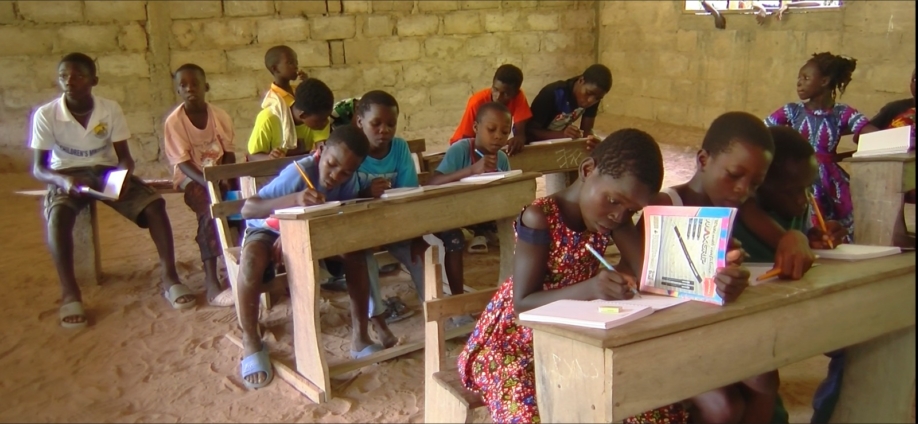The Ghana Education Service (GES) says it has observed with great satisfaction the rejuvenated sectoral support for education in deprived areas benefiting from the Communities of Excellence Programme (CEP).
Solomon Akurugu Azubilla, the District Education Director of Afram Plains North, noted that the positive change in the attitudes of parents and community members toward education is attributable to the Jacob Foundation-funded project implemented with support by UNICEF.
Under the Communities of Excellence Programme (CEP), the capacities of teachers, parents, chiefs, community members, market women, and every stakeholder in education at the selected districts are built to empower and equip them to promote teaching and learning in their respective communities.
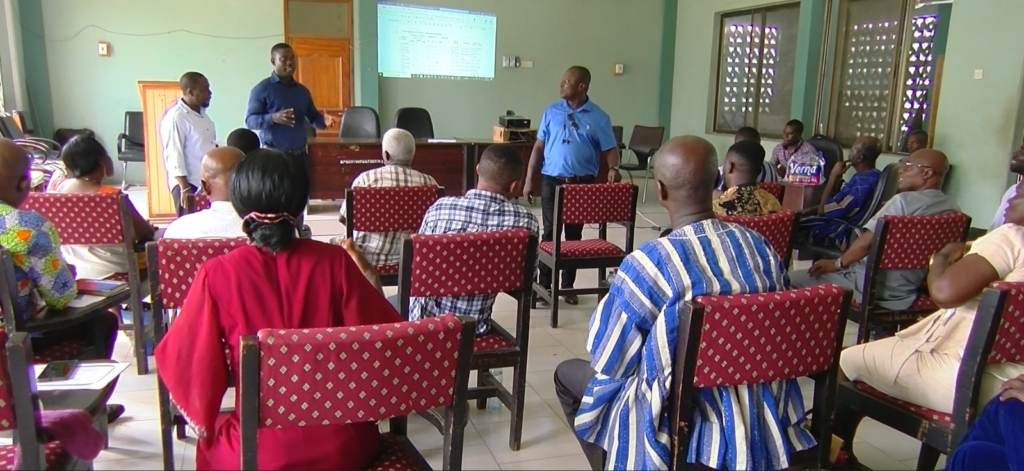
School children in these hard-to-reach settlements on the other hand, receive specialised interventions to enhance their literacy and numeracy abilities.
The programme also provides opportunities for school dropouts and children who have never had access to education to learn basic reading and writing skills, even in their mother tongue.
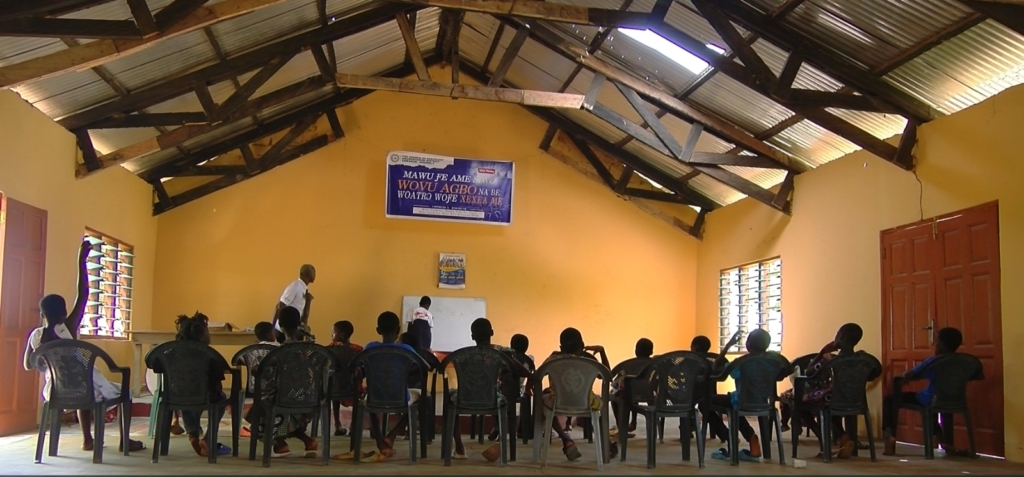
This initiative complements decades of other strategic efforts, including awareness creation, ensuring the right age for enrolment, reading festivals, leadership, and debate sessions—all aimed at improving educational outcomes.
A project inspection tour by programme implementers and selected journalists revealed that after two years of the CEP, several communities in the Afram Plains districts have started demonstrating a sense of ownership and electing themselves to drive changes that have long eluded Ghana’s educational system.
For example, with the increasing number of school enrolments, existing school infrastructure faces more pressure, and there is a growing demand for more teachers in these areas.
This development has compelled otherwise indifferent parents and stakeholders to take action and safeguard the futures of their children, particularly in an era where many government promises remain unfulfilled, and the materialisation of community needs is uncertain.
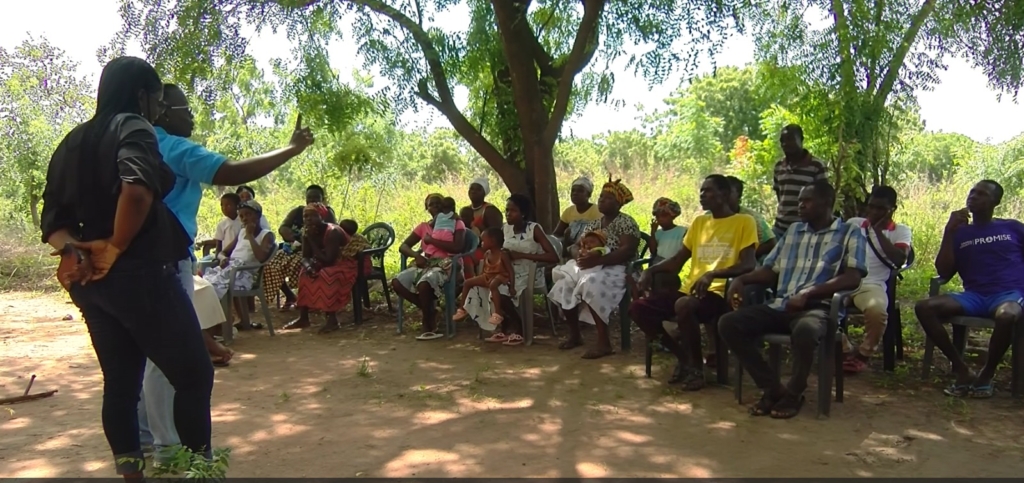
Beyond enrolling their children in school, parents have availed themselves of training and awareness sessions facilitated by the GES with UNICEF Ghana's support, funded by the Jacobs Foundation.
These trainings aim to help parents and community members better understand their roles and responsibilities towards their children's educational development and the importance of fulfilling these tasks.
A visit to New Kyeiase and surrounding hamlets along the Volta River in Kwawu Afram Plains, for instance, highlights the lack of health officers and teachers in these communities.
The lack is motivating parents to prioritize their children's education with the hope of producing their own health officers and teachers, reducing their dependence on limited government interventions.
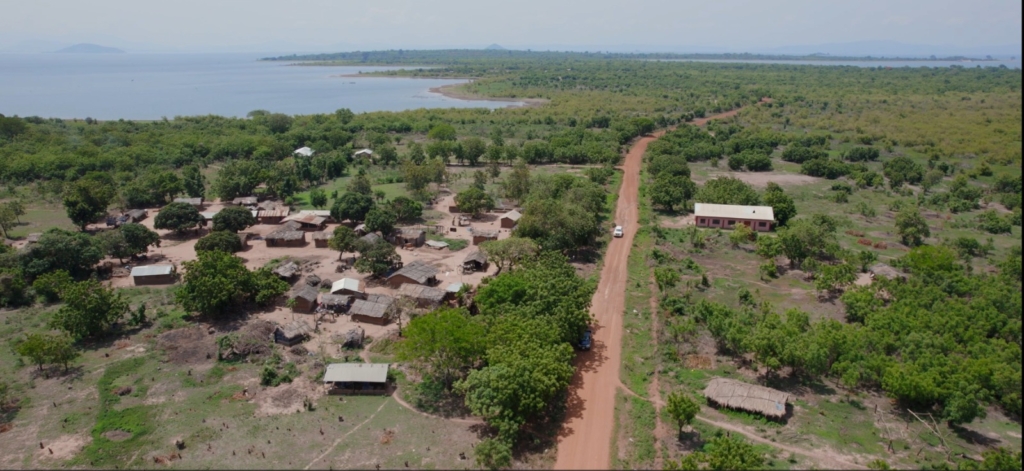
At a durbar to celebrate educational achievements and appreciate their benefactors, the School Management Committee (SMC) and Parents Teachers Association (PTA) of New Kyeiase D/A Primary and JHS handed over 50 dual desks to school authorities to accommodate increasing student numbers.
Notably, there are also ongoing construction of additional school infrastructure to augment the existing limited space. These include classrooms and libraries.
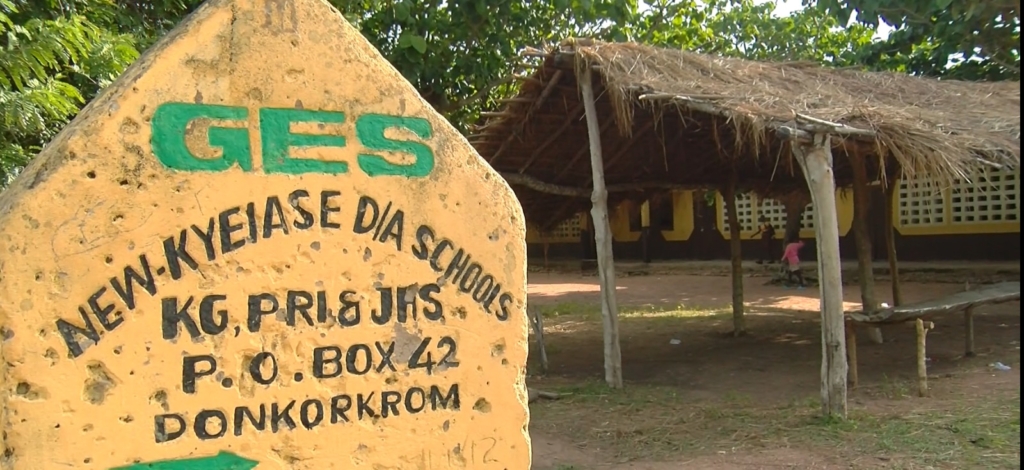
Mary Asiedua, a member of the New Kyeiase School Management Committee, observed, "Education has evolved, and you would be left behind if you continue to sit on the fence. That is why we as parents have taken up the responsibility to assist the school for the sake of our children.
The communities have become many; the government alone cannot meet everyone’s needs. If you continue to wait for the government, you are headed for doom. We couldn’t risk the future of our children like that, so we decided to step in."
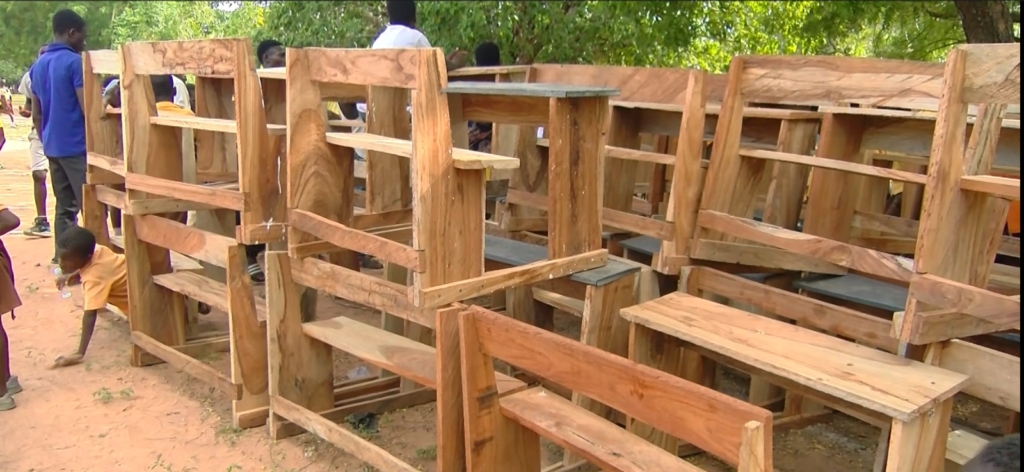
Mary further explained, "As for the desks, we had to levy ourselves, get the wood, plane them, and transport them ourselves to the school for construction. It was a very costly venture but worth our while. Watching our children sit on the dirty bare floor to be taught in school was an eyesore."
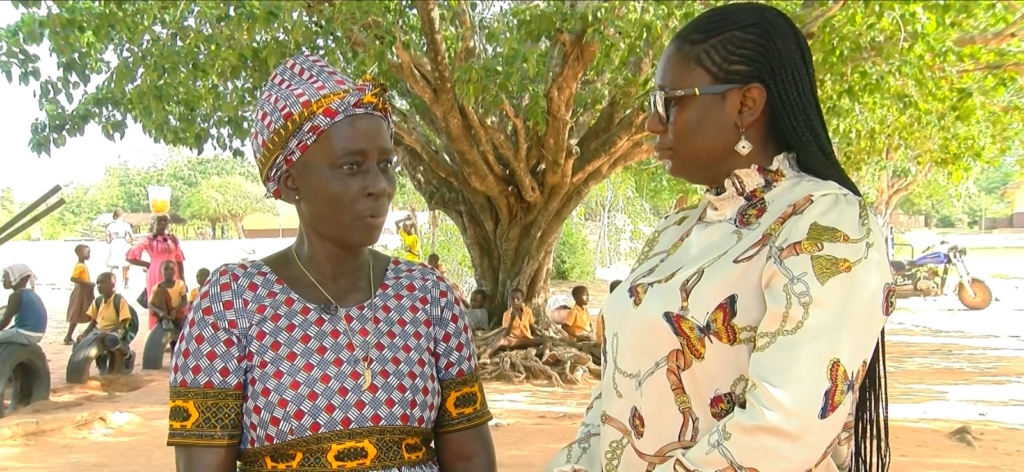
In island communities like Torkple, where teachers are scarce, the GES Focal Person for the Communities of Excellence Programme (CEP), Bismark Anku revealed that “Parents have engaged Community Teaching Assistants trained under the CEP to educate their children. They have also mobilized to support these assistants with regular monthly stipends. For transparent administration of these funds, they crafted a local savings box and kept it in the chief’s palace, ensuring to drop in their meagre contributions whenever they returned from the market.”
Mr Anku said the initiative has been effective and helpful in promoting education in Afram Plains in particular.
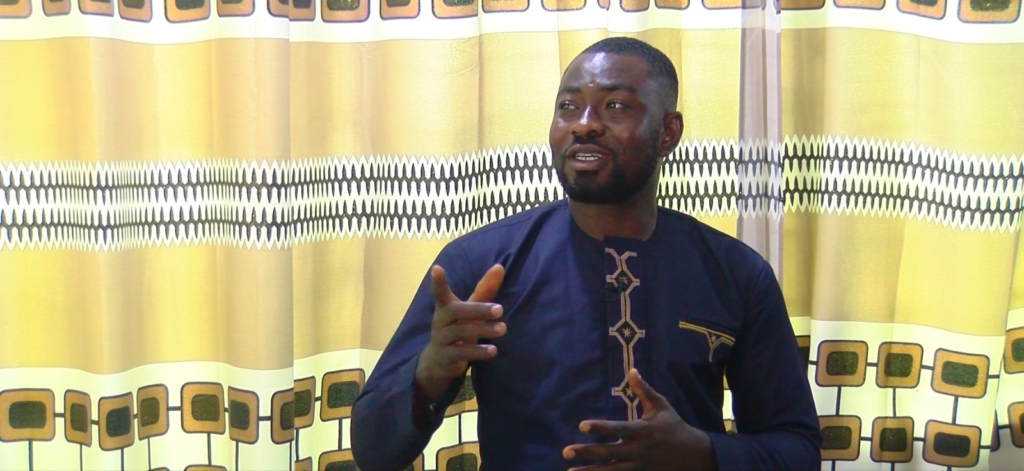
One woman, Madam Grace told JoyNews, "I have had to roam from house to house to solicit foodstuff and sometimes money to give to these young volunteers who have accepted to teach our children."
Grace noted that this gesture is a great source of motivation for the teachers. She however lamented, "Our roads are not good, and we are very deprived; it is not surprising that professional teachers refuse postings to our community. Of course, I would do the same if I were in their shoes. But just as you tend your farm expecting a bumper harvest, you need to do the same for your child so that at least we can produce our own teachers and health workers. That way, we wouldn’t feel handicapped or abandoned."
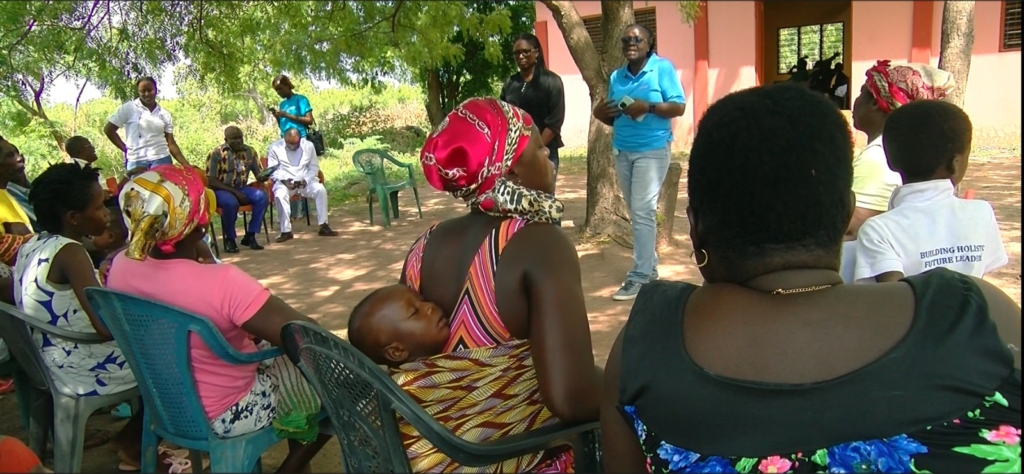
In Ntonaboma, another beneficiary community, the GES Focal Person for CEP, Bismark Anku, also indicated that “some parents contributed money to reward children who excelled in their reading festivals. This gesture has since motivated many more children to participate in reading festivals and other initiatives aimed at enhancing education in the district.
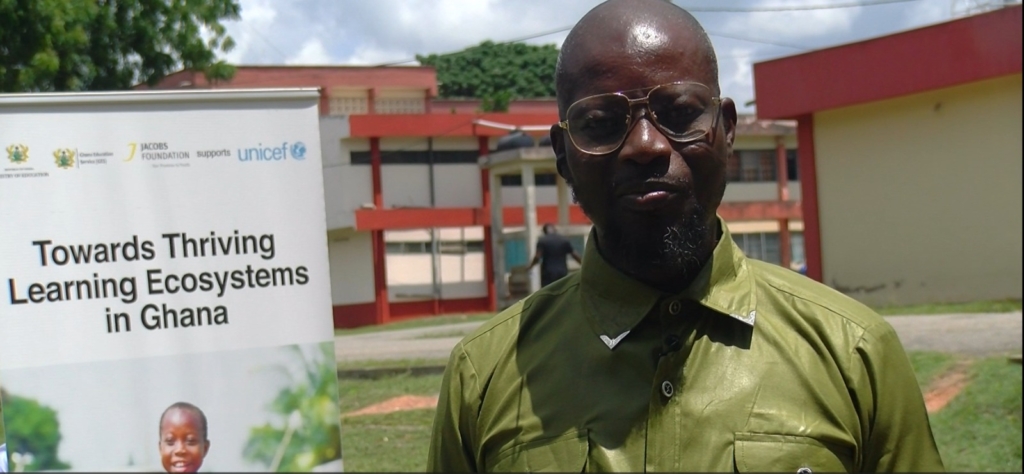
According to Solomon Akurugu Azubilla, the District Education Director of Kwawu Afram Plains North, "The Communities of Excellence Programme has brought about a lot of success in my district regarding community structures that promote education. Before the inception of this project, the SMC, PTA, and District Education Oversight Committee were just existing by name. But with the inception of the Communities of Excellence Programme, they have been trained and empowered on what to do to help education in the district. Now, if you go to most of the schools, you will see a lot of PTA involvement such as acquiring teaching and learning materials, buying textbooks, buying furniture, and even constructing libraries for their various schools. It’s becoming a competition among the communities to see who is doing better."
Latest Stories
-
President Mahama orders immediate probe into 2020 and 2024 election fatalities
3 minutes -
Ken Thompson applauds John Mahama’s initial ministerial appointments
11 minutes -
Shatana drops new single “Monicitamol” to inspire women
22 minutes -
Mahama calls on party supporters, and others fomenting trouble to act responsibly
24 minutes -
We’ll have 2 holidays for Eid al-Fitr celebrations this year – Mahama
30 minutes -
Effiduasi market women hit streets in demand for access to stalls after paying contractor
51 minutes -
GNAT urges gov’t to prioritise education sector challenges just as it’s tackling energy issues
53 minutes -
Free SHS can’t continue; parents must pay for feeding, accommodation – NAGRAT President
58 minutes -
Mahama demands update from IGP on election-related deaths in 2020, 2024
1 hour -
It’s a boy! Moses Bliss and wife welcome first child
1 hour -
Motorists stranded as fuel shortage hits Damongo
1 hour -
Fuel shortage hits Yendi and Damongo, residents appeal for swift intervention
2 hours -
Prof Bokpin endorses Finance minister-designate’s push for additional IMF funding
2 hours -
Sammy Crabbe criticises NPP leadership for party’s defeat; eyes chairmanship in 2026
2 hours -
There’s no formula for how a President decides to roll out his appointees – Dr Osae-Kwapong
2 hours

